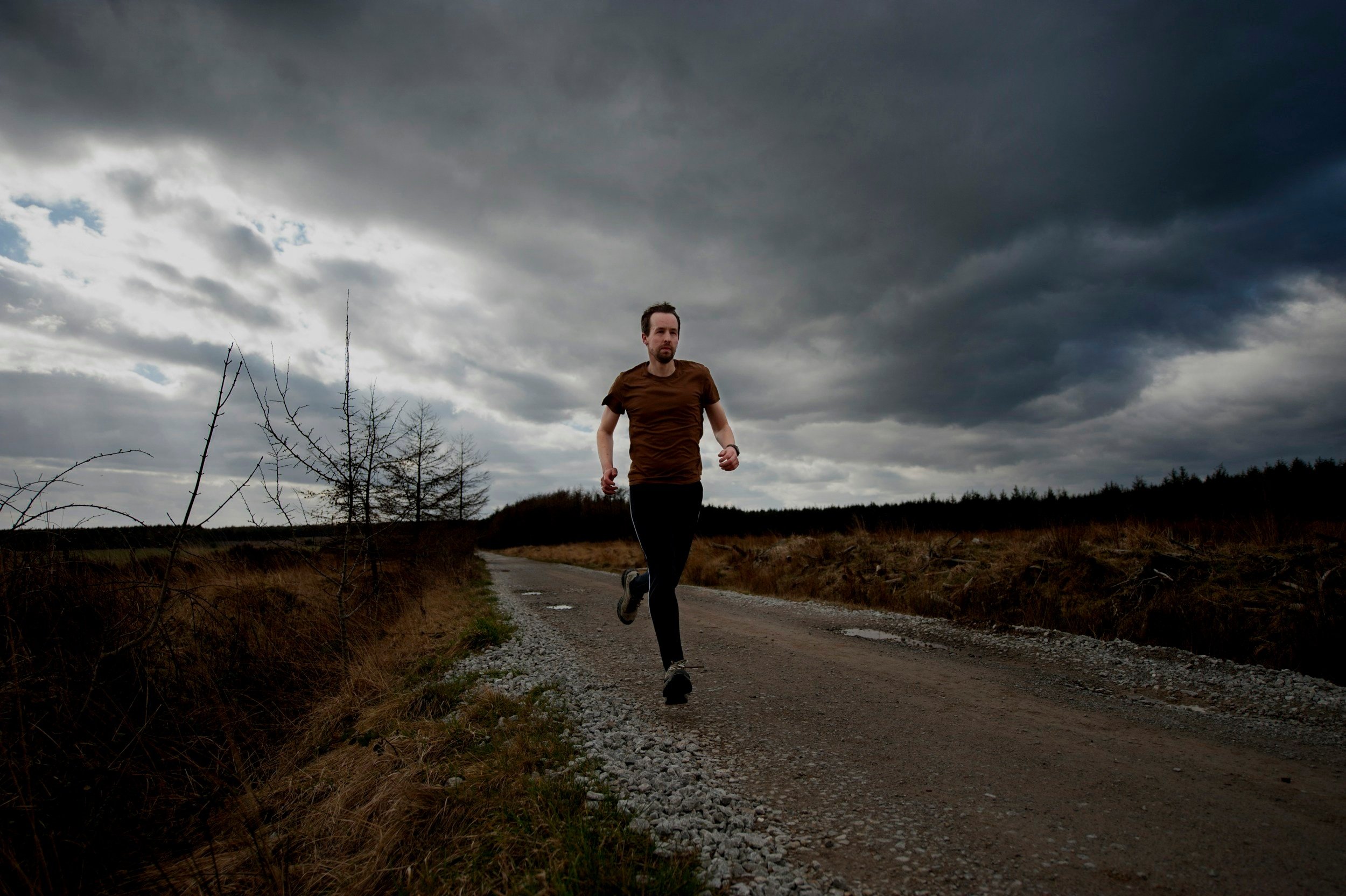
Running Injuries
Are Running Injuries Slowing You Down or Stopping You Reaching Your Goals?
Do you experience pain in your knees, shins, hips, ankles or feet when you run?
Wondering if your running form might be contributing to those nagging injuries?
Curious about personalised strategies to improve your running technique and prevent future injuries?
Physio7 might just have the answers that you are searching for….
Whether you’re a sub-three hour marathon runner pushing for a new personal best, a Sunday jogger trying to shake that nagging injury or you are just attempting your first run round the block, we believe we can help.
Physio7’s Chris Spurling is now an ultramarathon runner despite being something of a ‘biomechanical mess’! He has worked out how to improve his own running style, toughen up his joints and muscles, and train sensibly so that he is able to run ultra distances regularly.
He loves helping those people who run with inefficient and potentially harmful running patterns, and guiding them through the rehabilitation process.
Common running injuries we treat
Runners knee
Shin splints
Achilles tendinopathy/ tendinitis
Plantar fasciitis
Calf strain
Peroneal tendinopathy
IT Band syndrome
Stress fractures
Hamstring strain
Ankle sprain
Hip flexor strain
& many more……..
How do we help you get results?
Our in-depth assessment will help uncover:
WHAT hurts
WHY it hurts (those vital underlying problems)
Treatment with our 3-Step System will help to:
RELIEVE pain
RELEASE stiff joints and tight muscles & REALIGN the body
Improve RESILIENCE of your body
Ready to Get Going with Treatment?
Imagine lacing up your running shoes with confidence, knowing that every stride brings you closer to your goals.
Why not take one of the options below so that we can help you get to the root cause of your running injuries and improve your running:
What to book?
If you already have an injury that makes it difficult to run comfortably, book in for a standard 40 minute assessment session (or 55 minute session if you have 2 or more injuries) so that we can get basic treatment under way. The ‘Runners MOT’ is an in-depth assessment that is best carried out when your symptoms are under control and you can run comfortably.
If you are injured but you can run comfortably, feel free to book either one of the assessment sessions (a standard 40 minute assessment session for one injury, or a 55 minute session if you have 2 or more injuries). Even better, book in for the Runners MOT (90 minutes). This will give us loads of time to fully assess the injury, the underlying problems and your running style, and to get treatment and rehabilitation under way.
If you do not have an injury, and simply want to reduce your chances of getting injured, book in for the Runners MOT (90 minutes). This will give us time to look at your running style and to identify any underlying weaknesses, stiff/ tight areas and movement control issues that could cause problems in the future. We will then get you started with exercises to address any potential problem areas.
For more information about our Runners MOT click here
Did you know?
Many running injuries can be classified as overuse injuries, resulting from repetitive stress on tissues such as muscles, tendons, or bones.
Rapidly increasing mileage, intensity, or frequency of runs without proper progression is a common factor in running injuries. To avoid getting hurt, it’s important to increase your running distance, speed, and how often you run gradually and in a way that makes sense for your body.
Adequate rest and recovery are integral components of a well-rounded running programme. If you push yourself too hard, too often, without taking enough breaks, you are more likely to get injured.
If you feel any pain or discomfort while running, don’t ignore it. Taking care of small problems right away is really important to stop them from getting worse. Pay attention to any pain, swelling, or changes in how you run, and make sure to get help if you need it.

